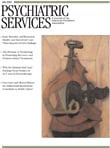The Need for Patient Education at a Psychiatric Clinic in Nigeria
To the Editor: Reports from other countries indicate that patients receiving psychiatric services may not have a good understanding of important aspects of their treatments. For instance, Carol and Wolfson (
1 ) found that in a population of patients receiving clozapine therapy in the United Kingdom, about half did not know why a monthly blood test was needed. Also, in a survey of 253 psychiatric inpatients in Pennsylvania, Clary and colleagues (
2 ) found that at discharge more than half did not know the name and dosage of the psychiatric medications prescribed for them and why they were taking them, even though they had received both group and individual medication instruction during hospitalization. Therefore, as part of a quality improvement program at an outpatient psychiatric clinic in Ibadan, Nigeria, patients were asked whether they knew the purpose of the medication prescribed to treat their extrapyramidal symptoms.
The study was conducted in April 2009 with a sample of 98 outpatients. The study used a clinician-administered questionnaire that was structured to obtain sociodemographic data and elicit respondents' views on the role of benzhexol in their treatment. Patients were asked to state how they perceived the role of anticholinergic drugs as well as the source of this information.
A third of patients (N=32) reported that they did not know the role of anticholinergic drugs in their treatment. Of the 66 patients who claimed to know, 42 gave responses that clinicians felt reflected little understanding and might have led to deleterious health outcomes. Patients' level of education was not related to whether they knew the role of these drugs.
Only 17 patients reported ever having received education about the role of anticholinergic drugs in their treatment. Among these, 13 reported receiving education from doctors, and one each reported nurses, pharmacists, medical students, and family members as the source of education.
In developing countries like Nigeria, where prohibitive cost limits the use of second-generation antipsychotics, a large number of patients who need antipsychotics receive first-generation agents. Extrapyramidal symptoms are more common when first-generation antipsychotics are used, and anticholinergic drugs can reduce these symptoms (
3 ). However, substantial research evidence indicates that there are dangers associated with the use of anticholinergic agents (
4 ). These dangers underscore a need for thorough education of patients who are users or potential users of these agents. Such education should focus on the specific role of the drugs in a patient's treatment and the risks that may be associated with misuse.
This survey provides evidence that most patients attending this outpatient clinic may not be well informed about important aspects of their treatment and that our multidisciplinary health team may have neglected to educate them. It also underlines the urgent need to improve patient information aspects of service delivery in Nigerian clinics.

